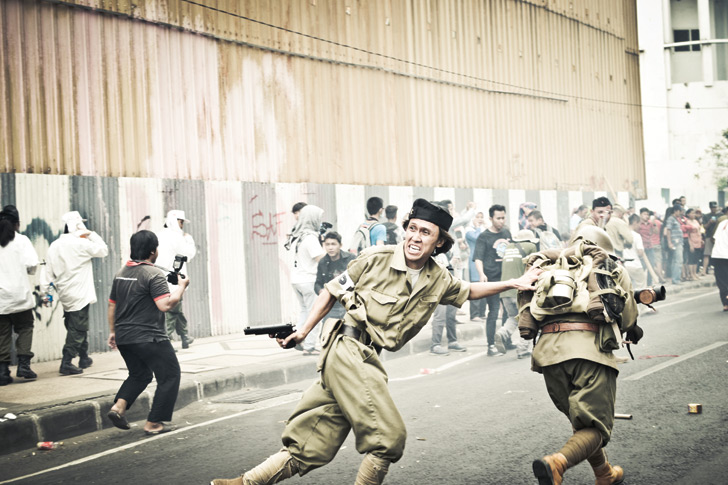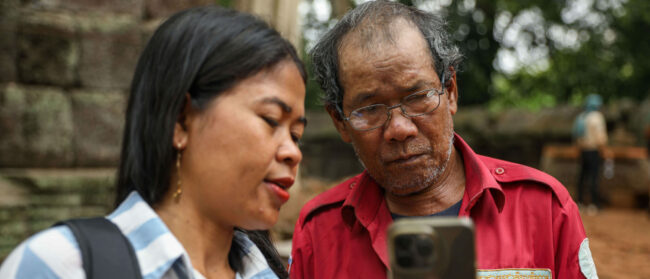At its peak, Nazi Germany’s Waffen-SS military force numbered almost one million members. Existing alongside the German army, the Waffen-SS drew on foreign volunteers and conscripts from across Europe and further afield, not all of whom were part of Hitler’s ‘Aryan’ race.
Among the diverse ranks was a soldier believed to be from Indonesia, a member of the 23rd SS Volunteer Panzer Grenadier Division Nederland, who was drawn into the fighting while living in the Netherlands after Germany attacked Indonesia’s former colonial power.
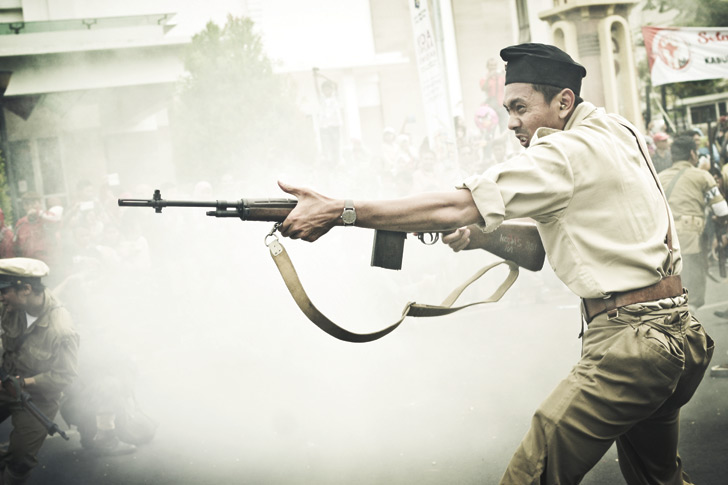
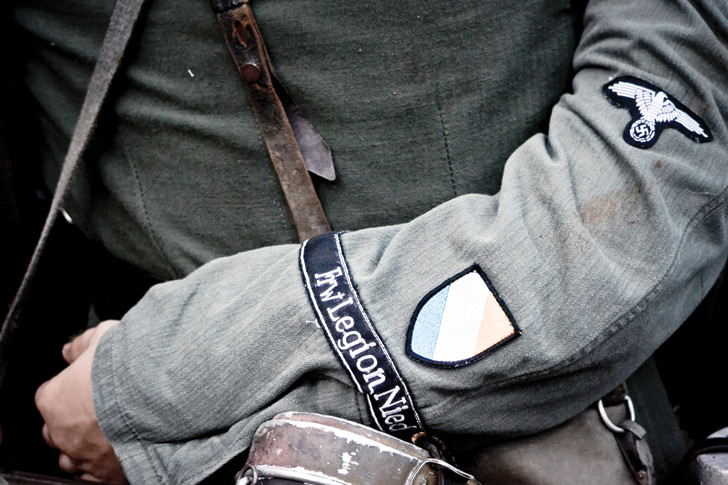
Whether he was Indonesian by blood or marriage, or was simply born in what was then known as the Dutch East Indies, this connection to WWII history caught the imagination of a Jakarta-based military reenactment group who began reenacting German military battles. They christened themselves ‘Indonesia Das Reich’, a moniker with sinister connotations that was later traded in for the more neutral ‘Indonesia Reenactor Jakarta’ after attracting negative attention.
Primarily made up of history buffs and military enthusiasts, the group says it is focused not on politics but on learning about the past. While recognising that some Indonesians were held in Nazi concentration camps, they also acknowledge that one of their countrymen was in the Waffen-SS.
Indonesia Reenactor Jakarta is not the only military reenactment group in the country: there are others dotted across the archipelago. Many recreate key battles in Indonesia’s fight for independence, such as the Battle of Surabaya, against British troops, and the General Offensive of March 1, 1949, which took on the Dutch colonial power. Annual commemorations of these clashes usually attract about ten reenactment groups apiece.
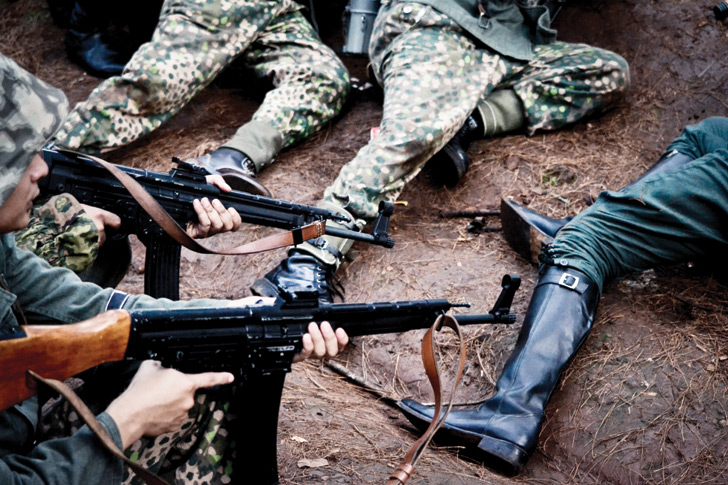
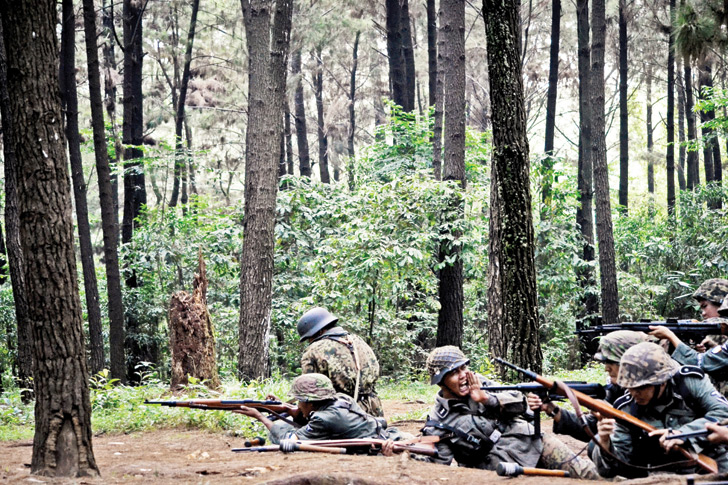
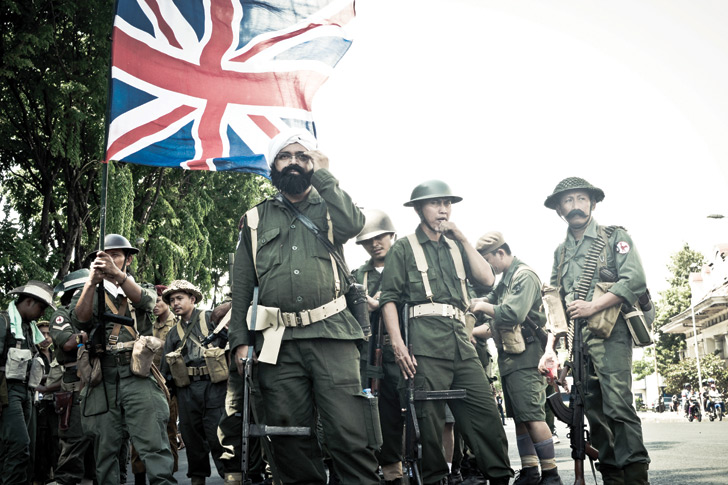
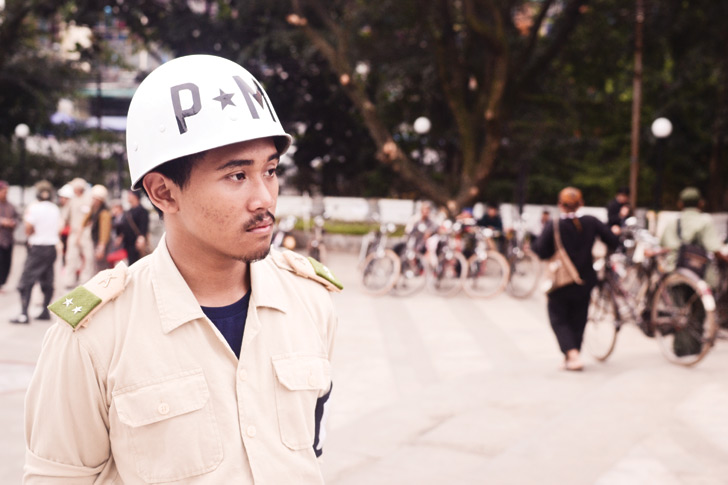
Some of the groups, including the Bandung-based ‘Historia van Bandoeng’ and the Yogyakarta-based ‘Djogjakarta 1945’, even depict the Royal Netherlands East Indies Army, which was infamous among Indonesians for its ruthlessness during the Indonesian National Revolution that lasted for four years until 1949.
Most of the reenactment community either has a military background or comes from a military family, while the rest simply have an interest in military history. They are now turning their attentions to other facets of 20th-Century history, with research underway on the colonial period and the 1950s with a view to recreating civilian life during these times.
